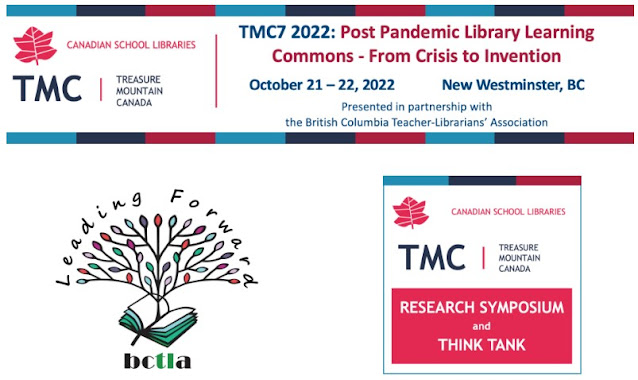David's talk was full of humour and hope. He wrapped it up by pointing out how far Canada has come in the past two decades. There is still much to do, but librarians making sure books by indigenous authors about indigenous lives are on the shelves is a big step toward helping Canada wake up from its troubled and often hidden colonial past.
The stories of non-cis kids leaving small towns even as those same small towns complain about a lack of doctors and other professionals was both funny and sad, and rang true with my experiences trying to provide safe spaces for 'atypicals' in my own small town school where gendered sports teams based on cisgendered norms drive school community in almost every sense. Ivan's honesty made me more vocal about my own differences during our presentation and might let me get a bit closer to what I am when I'm not pouring myself into the mould that everyone expects when I'm in the public eye. That's a powerful influence from a conference keynote!
In between the keynotes I attended a great engineering design process seminar with UBC's GeeringUP engineering outreach students. UBC's GeeringUP program offers many online STEM resources for students and educators. Are Ontario colleges and universities doing this kind of k-12 engagement? If not, why not? Fortunately, UBC isn't stingy about sharing its engineering resources.
When I wasn't in keynotes or seminars I was getting the broken school wifi to work so I could support rookie CyberTitan coaches five time zones away as they took their students through the first round of CyberPatriot. That a major school system in one of the biggest urban centres in the country struggles to provide basic connectivity says something profound about the digital divide Canada is facing. There are many components to developing effective digital learning, starting with connectivity and technology access. If we have trouble making the fundamentals work in a place where there are really no excuses, how are the millions of rural educators and students (including the vast majority of indigenous educators and students) across Canada feeling everyday? You can't even begin to address digital illiteracy when there is no connectivity. There is much work to do.
We wrapped up the BCTLA conference in a state of emotional exhaustion, but with minds brimming with possibilities. To see librarians taking on these national equity initiatives through ensuring access to books and media by and for the persecuted, often with unclear support from their own school systems (there was much talk about hate-filled attempts to co-opt trustee positions), was both inspiring and frustrating. Just when you think Canada might wake up from its shadowy, hate-filled colonial history and take a step into a brighter more inclusive future, that darkness reappears as twisted jingoism.
The BCTLA Conference was powerful in many ways, and after only a couple of hours to catch our breaths we were back at it for the Treasure Mountain opening dinner.



